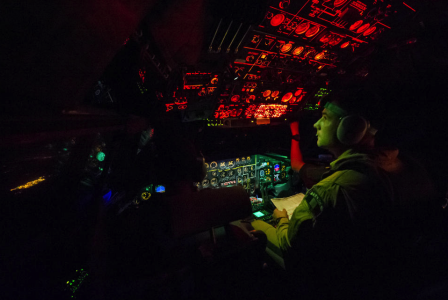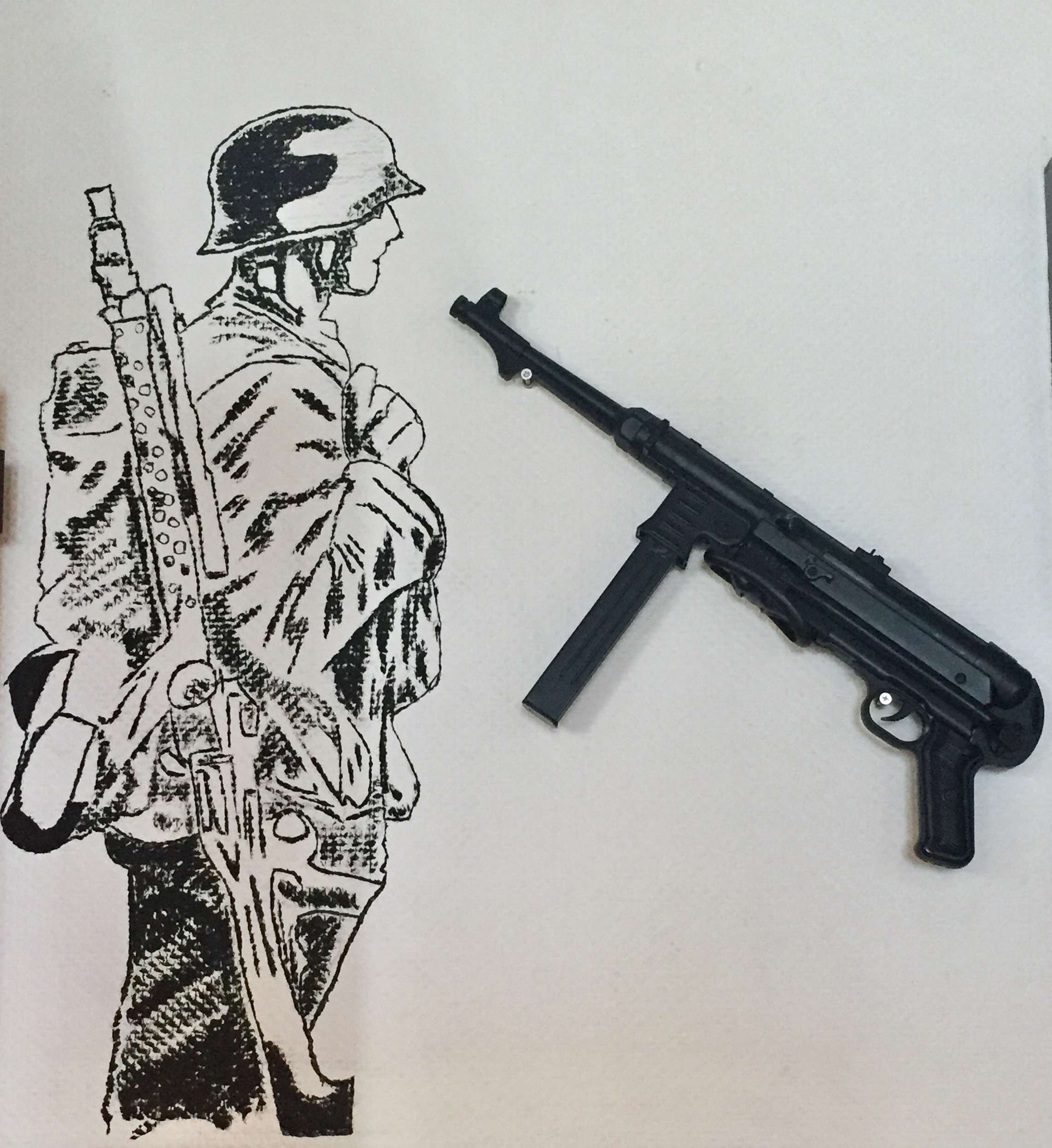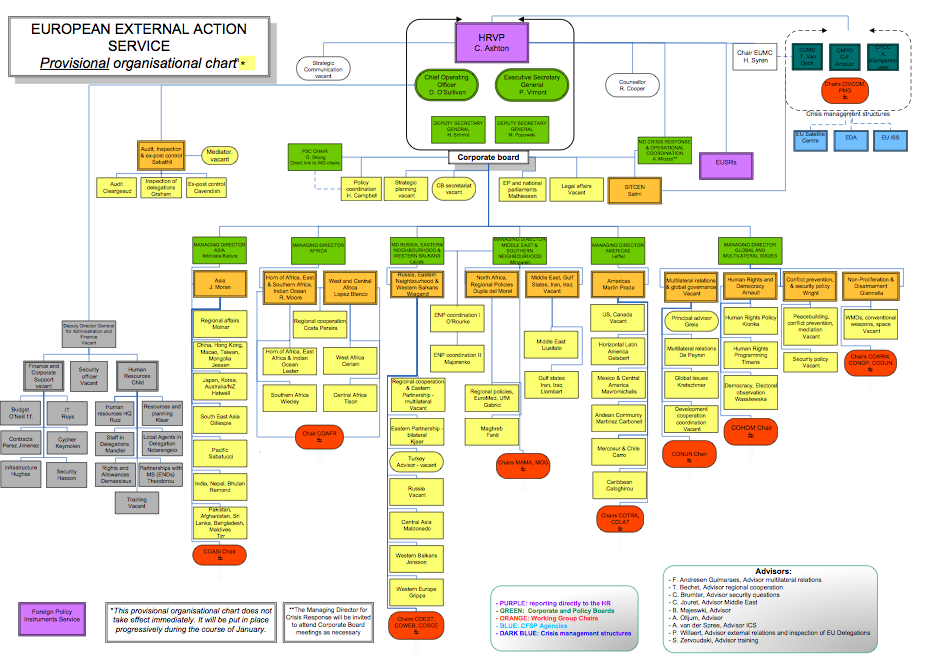Americans, British and French carry out humanitarian airdrops… and a bit more? on Amerli

(BRUSSELS2) Several French C160, C130 and C17 American, British and Australian planes carried out a joint operation to drop humanitarian aid overnight from Saturday to Sunday near Amerli/Amirli in northern Iraq, learns- on from different sources.
2 French Transall temporarily based in the United Arab Emirates
This city, located east of Tikrit and only 170 km north of Baghdad, has been besieged by elements of the Islamic State in Iraq and the Levant (ISIL / ISIL) for almost two months, " trapping more than 12 refugees we explain from a military source. "Turkmen Shiites" in particular. Two C-160 Transalls were mobilized to parachute 3 tons of humanitarian cargo, on the night of Saturday August 30 to Sunday August 31, 2014, announces the General Staff of the armed forces. To facilitate the operation, the 2 planes from the "Anjou" and "Béarn" squadrons, as well as a detachment of the Army specialized in airdropping missions, made up of elements of the 1st RTP (1st regiment of the paratrooper train), had been previously deployed in the United Arab Emirates. This decision, taken by the Chief of Defense Staff (CEMA) "has made it possible to broaden the range of actions likely to be carried out by the French armies to come to the aid of populations in humanitarian distress throughout northern Iraq we explain on the side of the CEMA. Since 2008, France has had an air base there (base 104) in Al Dhafra, which is still nearly 2000 km from Amerli.
Americans, British and Australians
The French were not alone. To tell the truth, the operation was combined between allies. Two American C-17s and two C-130s thus dropped 109 batches of humanitarian kit, including 10.500 gallons of water (= 40.000 litres) and approximately 7000 food rations. Two British C-130s carried out an identical mission, making it possible to "drop" 11,5 tonnes of food and water, including 420 jerrycans containing 8000 liters of water, announced the British Ministry of Development. For British Minister Justine Greening, the situation in northern Iraq remains completely horrific with thousands of Iraqi men, women and children suffering at the hands of ISIL (ISIL) terrorists. The British have moreover sent - since the start of the operation - 8 rotations of planes loaded with aid to Erbil, the capital of Iraqi Kurdistan, and 7 air drop operations on Mount Sinjar.
Airstrikes in Iraq against (US?) ISIL Humvees...
In parallel, American planes carried out, on Saturday night (0:30 UTC, 3:30 a.m. Baghdad), three airstrikes against ISIL forces " in order to support the humanitarian assistance operation said Pentagon spokesman Rear Admiral John Kirby, " at the request of the government in Iraq ". " Operations were limited in scope and duration to what was strictly necessary to resolve the emerging humanitarian crisis and protect civilians trapped in Amirli (Bitter)” he explains. " The US military will continue to assess the effectiveness of such operations (...) in providing humanitarian assistance in Iraq ". According to data from US Central Command in Tampa, the strikes destroyed 3 ISIL Humvees - US-made vehicles believed to have been captured from the Iraqi army - as well as an armed vehicle, a checkpoint and a tank of ISIL. " All planes got out of the area safe and sound “says the CentCom press release. We learned Sunday, by agency dispatches that the Iraqi security forces had succeeded in breaking the siege of Amerli.
- NB: The word humanitarian assistance is a bit overused here. True, since the start of operations, the Americans have carried out a total of 118 airstrikes. Which is, all in all, quite modest. But it is a real military operation that is engaged. Certainly it is a question of coming to the aid of besieged populations. But the humanitarian "component" is only a small "component" of the operation, the main thing is to loosen the noose around the Kurds and the central government in Iraq, to roll back the forces of ISIL - considered today as the "worst" enemy of the international community. For this, the good technique of the pincer grip is put in place.
... and action plan in Syria
Moreover, US President Barack Obama very publicly asked the Pentagon on Thursday (August 28) to present to him " several options to limit the presence of ISIL in Syria ". Options already planned by the American staff as admitted by its spokesperson. " I wouldn't be telling the whole truth if I told you we didn't think about this until yesterday. said Rear-Admiral John Kirby to the press. " Of course we did. And that's what we talked about (with the president). However, the Pentagon is not yet at the point where the plans are mature enough to have a discussion with the Commander-in-Chief of the Armed Forces (alias Obama)” he completed. And to add however: The options in Syria are not limited to the military. There will be no military solution here to the threat posed by ISIL. (...) Containing and eliminating the terrorist group will require all elements of national power "... In the meantime, on the Iraqi front, " operations will continue ».
(Nicolas Gros-Verheyde)


